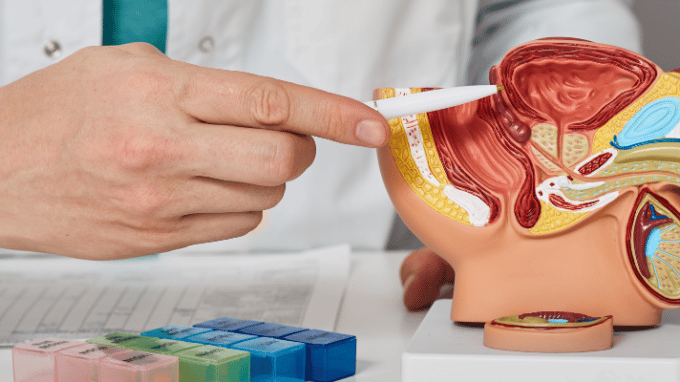As your body ages, it can become more difficult for men to conceive a child. One of the primary reasons for this is the prostate gland, located in the center of the lower back. It may be no surprise to health that with age, the prostate enlarges and, if left unchecked, can make it more difficult to conceive a child, among other things.
Recent studies have shown that improving prostate health can significantly increase male fertility by opening the channels for sperm to swim up from the testes and out through the urethra.
Here we dive further into the many natural foods and herbs that can support prostate health naturally, to help men identify how to improve their fertility and overall health.
Dark Leafy Greens and Legumes
Dark leafy greens and legumes are rich sources of minerals such as zinc and selenium. These minerals help protect against oxidative stress and reduce the risk of chromosomal abnormalities in sperm. Men who experience urinary and kidney infections due to lower urinary tract symptoms are often deficient in these minerals. Sufficient levels of zinc and selenium can improve prostate health and reduce the risk of DNA damage in sperm, thereby improving fertility. Zinc is also vital for producing sex hormones, which promote healthy prostate function and sperm production.
Astragalus and Ginger

Likewise, ginger has also been proven to improve prostate health in men with reduced sperm production and in men with poor sperm motility.
Vitamin D
Vitamin D is an essential vitamin that promotes bone health, regulates the immune system, and supports the production of sex hormones. A recent study found that men with low vitamin D levels had significantly higher levels of the enzyme that destroys reproductive hormones. Vitamin D has been linked to a reduced risk of prostate cancer and can also help reduce the risk of erectile dysfunction. Furthermore, adequate vitamin D levels support healthy prostate function and a reduced risk of DNA damage in sperm. A study also found that men with low vitamin D levels were two times more likely to have a severe form of male infertility than those with adequate levels.
Vitamin D receptors have also been found in the prostate, suggesting that the vitamin may directly affect its tissues. Men who spend less time in the sun experience reduced vitamin D levels, which may be one of the reasons why fertility rates are declining.
Omega-3 Fats
Omega-3 fatty acids (such as EPA and DHA) are essential fatty acids that reduce oxidative stress and protect DNA from free radicals. A recent study found that men with a low intake of omega-3 fats had significantly lower sperm counts and sperm motility than men with adequate intake. Omega-3 fats are found in fish, nuts, and seeds. Men with low sperm quality should consume at least two portions of oily fish weekly, walnuts, flaxseeds, and other plant-based sources of omega-3 fats.
Zinc and Vitamin B12 to Promote Prostate Health
Zinc and vitamin B12 are essential for producing sex hormones and prostate health. B12 is required for proper sperm production, whereas zinc, as mentioned above, is a crucial mineral involved in the production of sex hormones and to promote healthy prostate function and sperm production.
A study found that men with low levels of B12 and zinc had significantly lower sperm counts and reduced sperm motility than men with adequate levels. Zinc is also an essential mineral for reducing oxidative stress and protecting DNA in sperm cells.
Ultimately, the best way to maintain healthy prostate function and increase the chances of conception is to reduce stress, exercise regularly, and incorporate these natural substances into your daily fertility diet. These lifestyle habits can improve, not only men’s fertility, but also their prostate health as an adult and into their later years.




